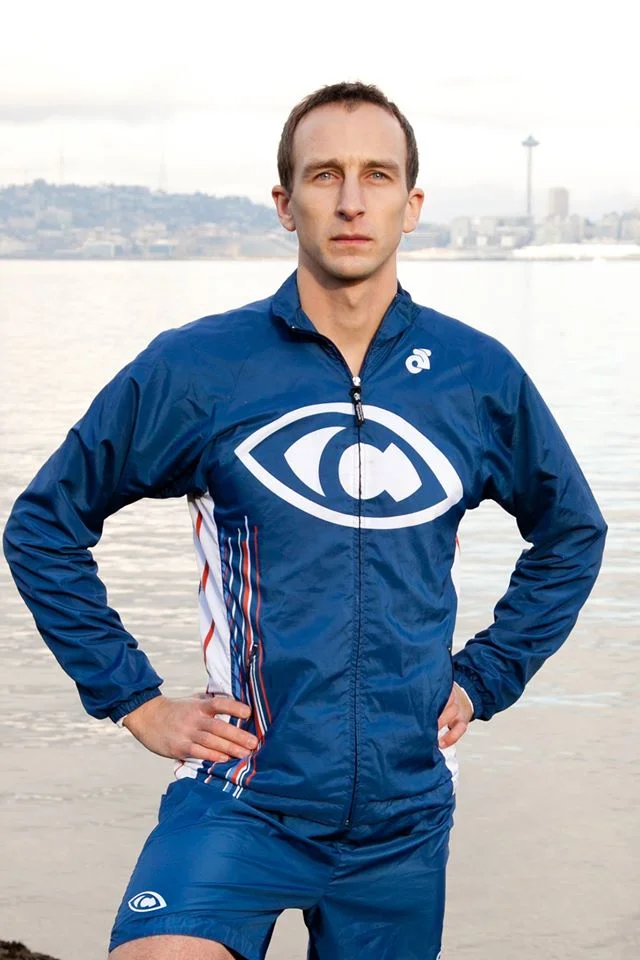Response to Recent Decision to Exclude Blind Athletes from Paratriathlon in Rio 2016 Games
As an ambassador for the blind community and founder of the CDifferentwithAaron movement, I am writing this statement in response to the recent decision by the International Paralympic Committee (IPC) to exclude the blind/visually impaired male (PT5) classification from competition in Paratriathlon, which will debut at the 2016 Rio Paralympic Games. I am extremely disappointed with the decision on multiple levels.
The IPC accepted the sport of Paratriathlon into the Paralympic Games and thus, should be fully committed to the inclusion of all five competition categories for both men and women, so long as each one meets the Paralympic criteria for country representation. The PT5 category for men met all the qualifications needed including at least four different countries being represented in the top ten of the world rankings and at least eight countries represented from at least three IPC regions at international competition, yet it was heartbreakingly not chosen and PT2 was. It leads me and the VI community of athletes to believe that the perception of being blind is not given the same credence as an athlete with a visually noticeable impairment.
2016 will be the inaugural games for the sport of Paratriathlon but the fact that all classification categories can not be granted is hard to comprehend. Paralympic sports such as Athletics (Track & Field) has over 50 sport classes and Swimming has 13 sport classes. These two sports alone give out between 150-175 medals each, which leads to question why Paratriathlon cannot get full inclusion.
It seems to be a gross misperception regarding the blind/visually impaired community that we are less “physically impaired” and thus are given a back seat with respect to the other classifications. At a physiological level, there is no difference between structural damage to the eye and structural damage to the leg or spine, except that those with vision rely on the exact ability that we lack to “see” their physical disability. Because others are using their vision to define disability, they “see” people of the blind/visually impaired community as less “physically impaired”. I believe that this perception permeates throughout Disability Sport and it is evidenced by the lack of representation of the blind/visually impaired in decision-making positions at organizations such as IPC and ITU (International Triathlon Union).
The IPC has made it clear that fulfilling the spectrum of physical disabilities is not of high priority if all three groups in the disability spectrum are not on the event program. In a broad sense, the Paralympic games include three major groups; sit down athletes (spinal cord injury), stand up athletes (upper and lower limb impairments) and blind/visually impaired (VI). In Rio, only two of these three group for both men’s and women’s Paratriathlon will be represented. The decision to exclude women’s PT1 (sit down athletes) and men’s PT5 (blind/VI) categories puts to question the very definition and mission of Paralympic competition.
The Paralympic mission is, “To Enable Paralympic Athletes to Achieve Sporting Excellence and Inspire and Excite the World.” The PT 5 category was the most competitive category of the remaining categories to be selected during the recent October decision for Paratriathlon. The PT 5 category truly helps to define and validate the elite level of competition in the sport. At the recent World Championships in Edmonton, the PT5 category posted the fastest overall time across all five Paratriathlon classifications and was marketed as the headlining race to watch in the event media guide. The dynamics of the athlete guide relationship grabs the attention of spectators and embodies the spirit of working together to achieve excellence in sport.
I hope that the IPC looks at this statement and examines what it means to fully accept a sport into the Paralympics, the perception and representation of each class of athletes included in the Paralympics, and ensuring the preservation of the full spectrum of physical disabilities for which the Paralympics was founded upon.
Although, this statement has focused on the blind and visually impaired community for which I am apart of, it is applicable and relevant to other Paralympic sports and other classifications. I strive to be an ambassador for sport, and this involves being proactive for change when change is necessary. The intent of this statement is not to discount the hard work and efforts of the IPC and its subsidiaries, but rather for these entities to take a close look at their processes and ensure that they are inline with the mission that the Paralympics established. I want the best for the Paralympics and their future, and I am always willing to work together to do this.


